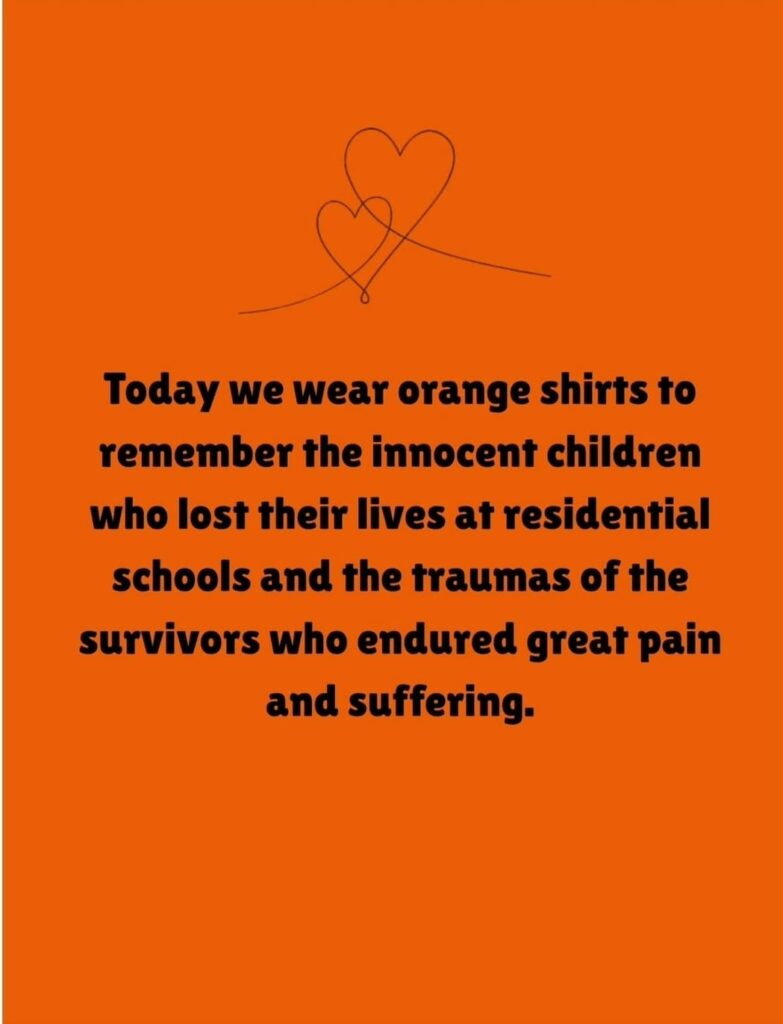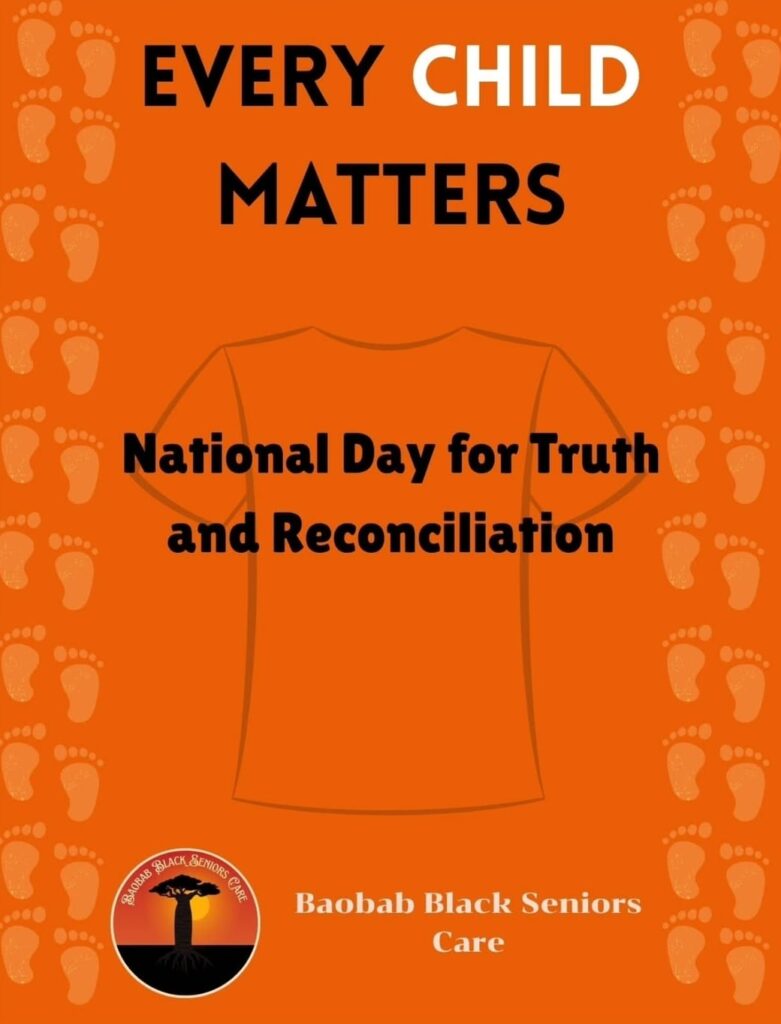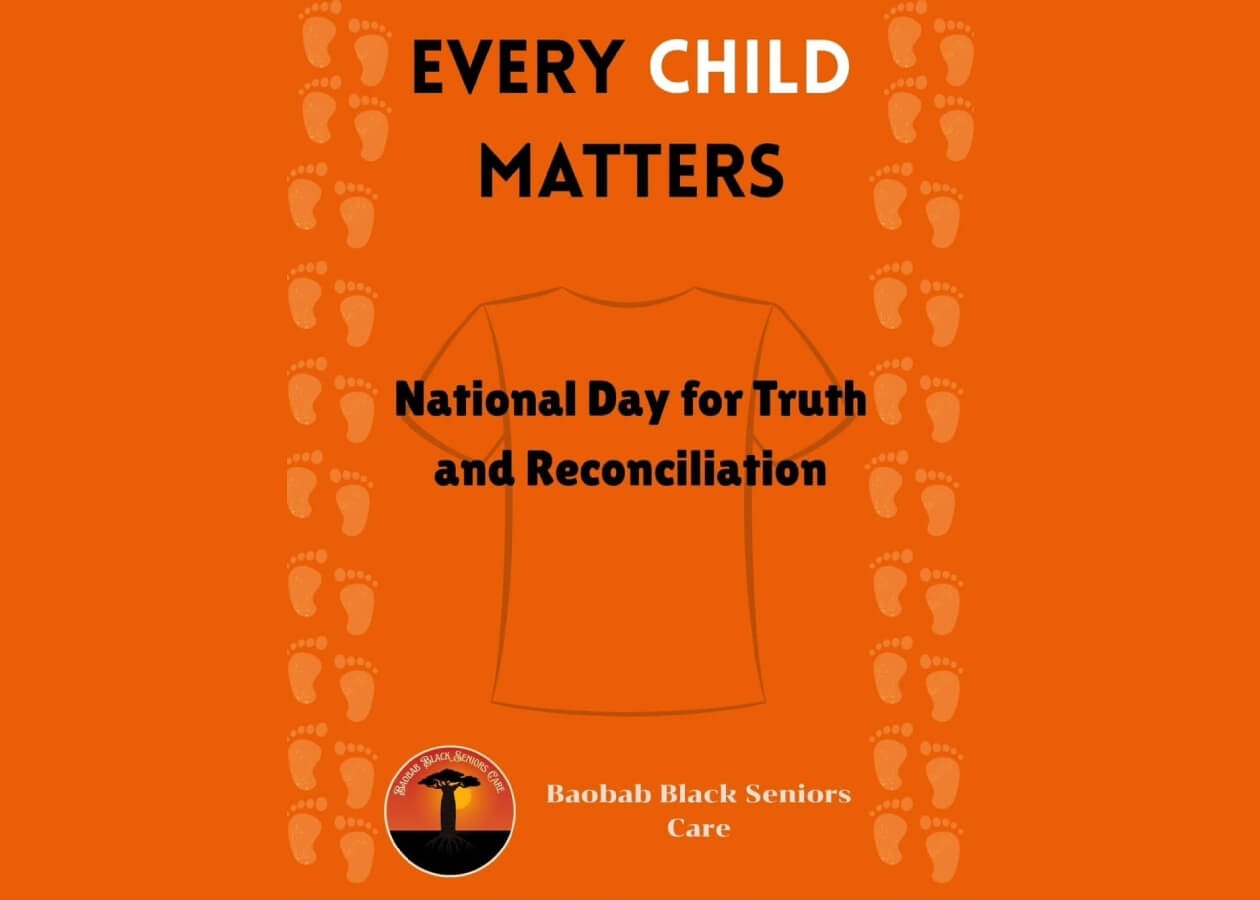As Baobab Black Seniors Care Society, we carry out our work in what is colonially known as Richmond on the traditional, ancestral, and unceded territory of the xʷməθkʷəy̓əm Musqueam people. We are grateful to live and work on these lands at the heart of the Fraser River. With a provincial mandate, we also acknowledge that our work reaches across many Indigenous territories in British Columbia, and we honor the Nations whose lands we are present on and accountable to.
Today, we acknowledge the truth of the residential school system in Canada. The National Centre for Truth and Reconciliation reminds us: “For more than 150 years, First Nations, Inuit, and Métis children were taken from their families. More than 150,000 children attended these institutions. Many never returned home. The harms are ongoing and are felt across generations.” We also recognize the work of the Truth and Reconciliation Commission, whose 94 Calls to Action name a clear path for change. The Government of Canada has affirmed that “The National Day for Truth and Reconciliation on September 30 responds to Call to Action 80 and invites all of us to remember, learn, and act.”
Here in British Columbia, the Declaration on the Rights of Indigenous Peoples Act (DRIPA) as the framework for reconciliation in our province. This sets a standard for how the BC government and organizations, including ours, should work with Indigenous Peoples. Reconciliation is not symbolic; it requires concrete action and accountability.
As a Black-led, Black-serving seniors organization, we recognize that our liberation as Black people is inextricably linked to Indigenous sovereignty. Today, we also see the connections in our shared experiences navigating systemic racism, displacement, economic inequality, and health inequities, as well as the loss of language, culture, and connection to land. These realities create profound barriers to belonging and well-being, reminding us that only through deliberate relationship building and joint action can we move toward collective liberation.
To that end, we commit to continuing to learn and unlearn about Indigenous communities through regular education, reflection, and dialogue. We will co-create programs with Indigenous partners that bring elders together across communities to rebuild connection and belonging, and we will use our voice to support policies that uphold Indigenous rights and improve elder well-being, including access to culturally safe, trauma-responsive care and community spaces.
We offer this acknowledgment with humility and in the spirit of ubuntu, “I am because we are.” Where we fall short, we invite corrections and guidance as we strive to do better. Our elders teach us that belonging is built through relationships, honesty, and consistent action. We commit to that path, standing in solidarity with Indigenous Peoples.
#TruthandReconciliationWeek #yourparticipationmatters #nctr_um




